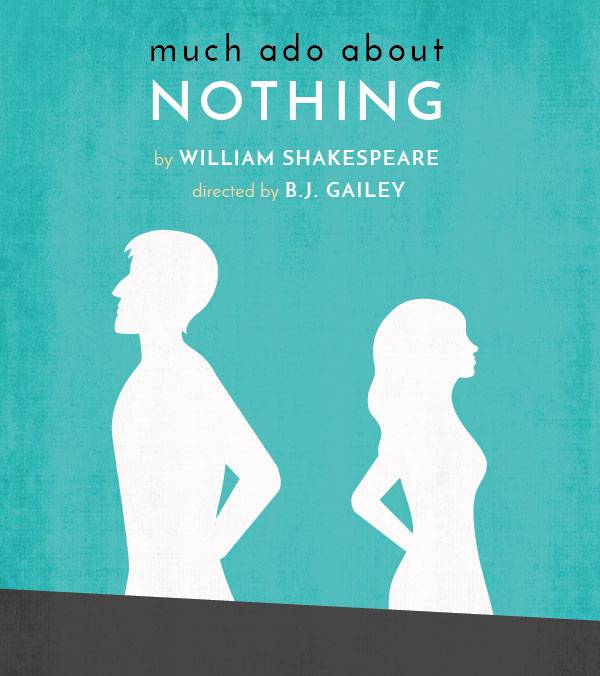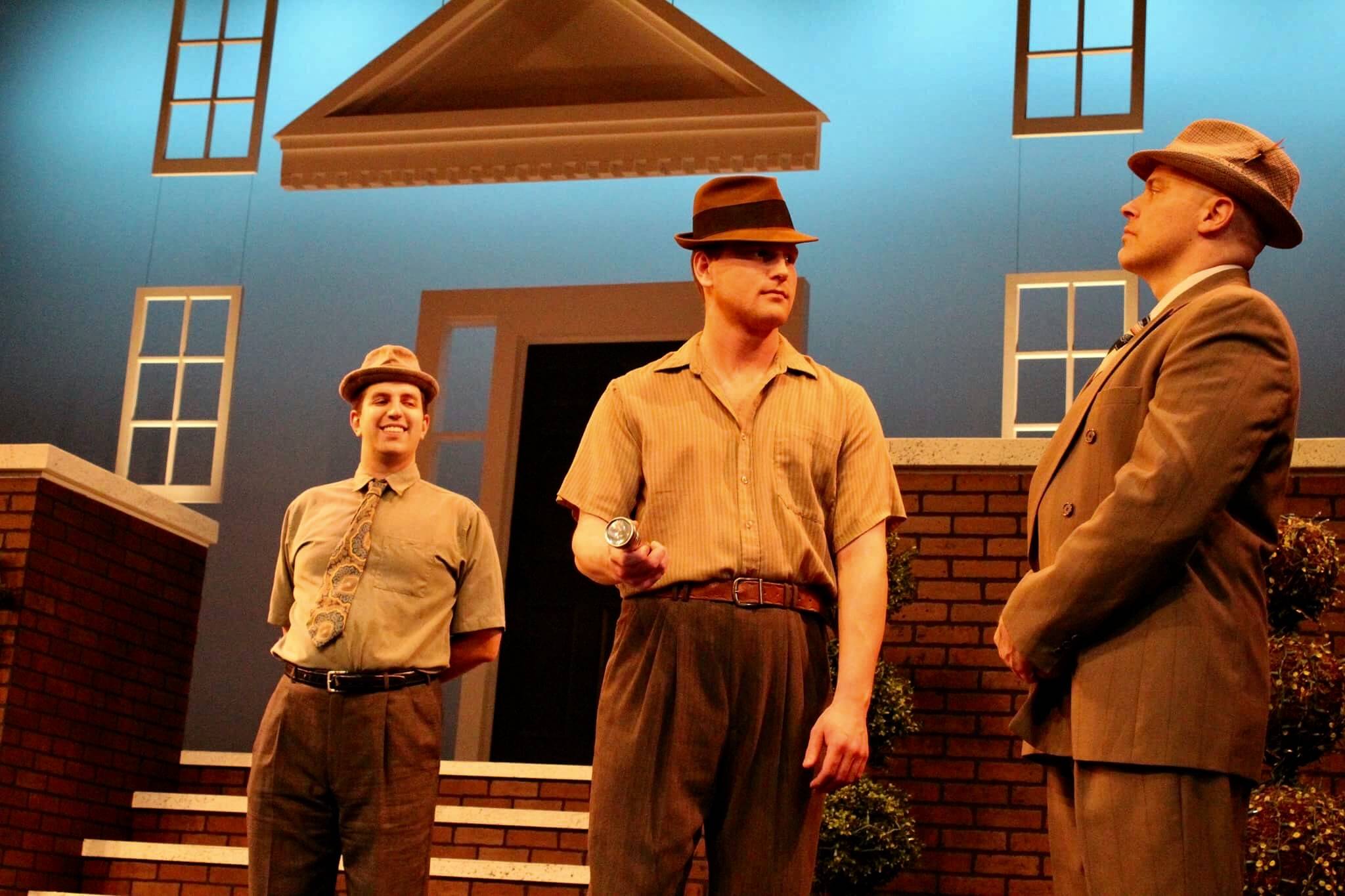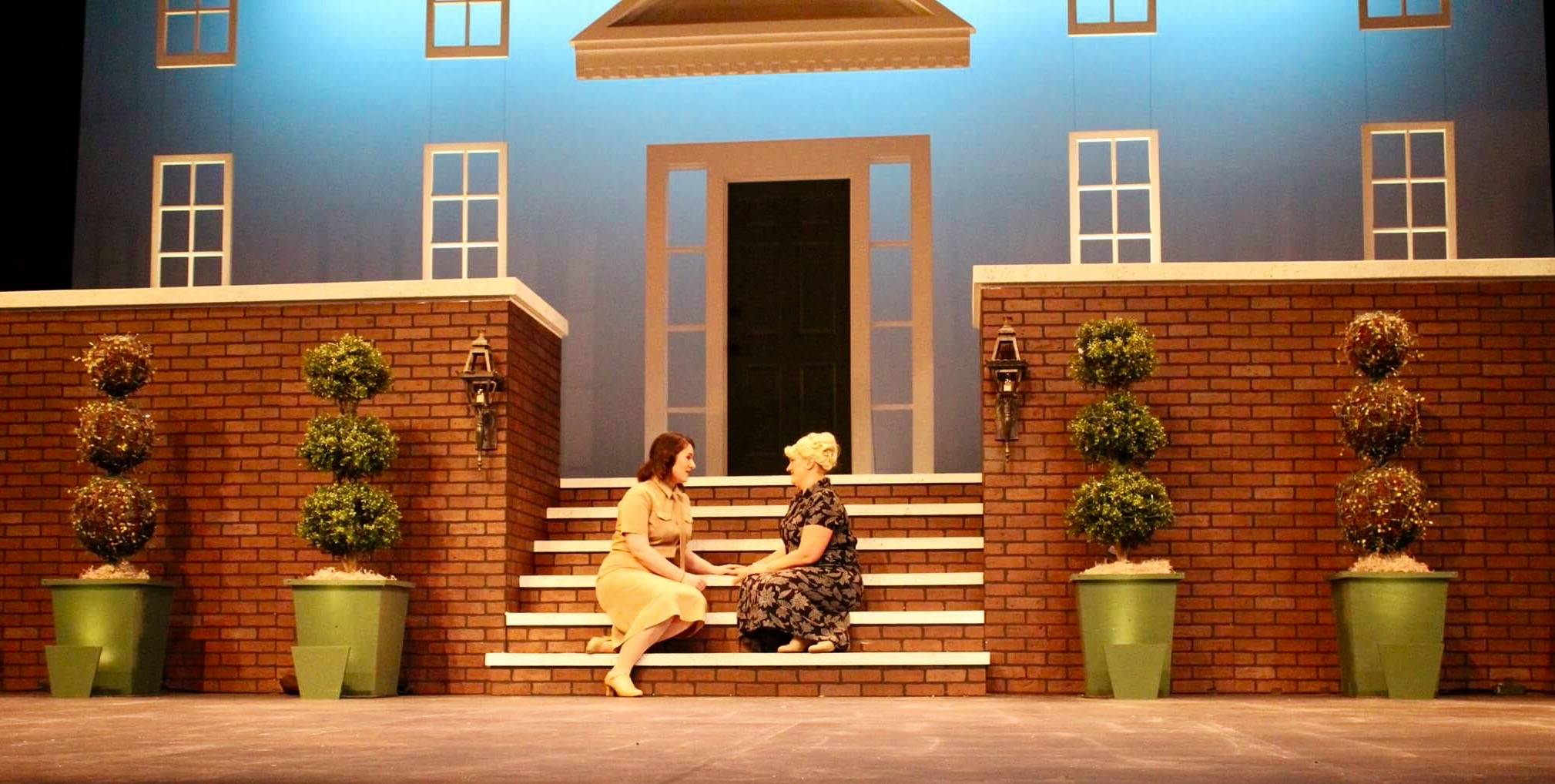Much Ado About Nothing renders itself as a timeless comedy guaranteed to have audiences bending over in laughter and relating to the characters’ struggles of unrequited love and the delicate intricacies of intimacy. The play opens with a group of friends — Claudio, Benedick, Don Pedro, and Don John — coming back from war and going to Leonato, the governor of the town. Upon the arrival of the soldiers, Leonato welcomes Don Pedro and invites him to stay for a month, Benedick and Beatrice — Leonato’s niece — resume their battle of wits, and Pedro’s illegitimate brother Don John is introduced. Claudio’s feelings for Hero, Leonato’s only daughter, are rekindled upon seeing her, and Claudio announces his intention to court her.
Soon after, mischief and mayhem ensue as they all attempt to sabotage the relationships at hand, both with good intentions, and not so moral ones. On the Parkland website, Much Ado About Nothing is described as such:
“deftly combines humor with wit and insight. Rich characterizations and relationships entertain, mistaken identities delight, political deceit and misguided honor nearly thwart the good -and love, in the end, conquers all.”
Director BJ Gailey puts a twist on the classic production, not only changing the time and setting of the play, but even gender-bending two of the key characters in the show — Benedick and Leonato. This production takes place in 1946, with the characters just coming back from World War II.
I spoke with director BJ Gailey and Abby Gailey (the actress playing Benedick) about this unique, modern interpretation of a Shakespearean classic.
Smile Politely: If you had to summarize the show in one sentence, what would it be?
BJ Gailey: A group of friends return home from war to rejoin society and rekindle relationships, and in the process, a number of characters discover a love they didn’t know they had.
SP: How is this performance of Much Ado About Nothing, a classic Shakespeare production, unique?
BJ Gailey: We are actually really excited about this production because we have made a couple changes that work for the script, but also altered the script a little bit for a modern audience. For example, we set it in 1946, so a lot of the themes — returning home from war, changing expectations and understandings of what a woman’s place in society is — that happen historically are also happening in the play. We’ve also bent a couple of the genders, such as Benedick and Leonato are both women, as well as a number of other roles. What this does is it calls into question some of the relationships that are in the play itself, and helps us further examine what it was like to be a woman not only in Shakespeare’s time, but also 1946 America, and maybe also today.

SP: And is Benedick going to be played as a woman playing a man, or Benedick as a woman? And does this bring the LGBTQ+ community into the plot?
BJ Gailey: She is a woman, and absolutely yes, we are bringing the LGBT community into our story.
SP: So Abby, how did you go about playing the role of Benedick when it is traditionally a male role?
Abby Gailey: I think Shakespeare is really great because whatever he wants you to do, it is very clearly written that way. I really just try to play the truth of the moment. I felt a bit of pressure because the role is played as a man’s role, but I also felt very empowered by that because this is an opportunity that I’ll never have. In terms of the representing the LBGT+ community, I myself am straight, but I felt that it was very important to tell this story as honestly and truthfully as I could, because there are so many under-represented, non-heterosexual relationships that deserve to be represented.
SP: Shakespeare’s language can be very hard to understand. How did you tackle this problem with your actors/as an actor?
BJ Gailey: I was lucky enough to cast some really intelligent people. My background is Shakespeare, and so we did a couple of things. First, we did a lot of what you call “tablework,” where we spent a lot of time around a table discussing relationships, meaning, motivation, so that it was crystal clear for us. Second, we concentrate on the stuff that is already accessible in Shakespeare. For example, there are a lot of moments where the characters are directly speaking to the audience, so you have to make that accessible, otherwise it doesn’t play. We spent a lot of our time really focusing on what’s happening in the scene, how can we communicate that, even if someone in the audience doesn’t get every single word.
Abby Gailey: BJ, as a director, one of his biggest goals with any Shakespeare performance is accessibility. I think that Shakespeare done well is easy to understand. It’s when the actors don’t understand what they’re saying that then the audience doesn’t understand. We did a lot of work sitting around a table going through the script saying, “What does this mean?” with this giant Shakespeare dictionary. BJ is so knowledgeable that you could stop in the middle of a scene, say “I don’t know what I’m saying,” and he would explain it.

SP: What can audiences look forward to when seeing this production?
BJ Gailey: A lot of laughter — it is very funny. I think a lot of people who are hesitant about Shakespeare are going to be surprised. They’re going to see it and they will say, “I recognize these relationships, I know what’s at stake.” It is also very fast paced and quick on its feet. The whole production is two hours including intermission. The core relationships are surprising and beautiful. If we’re doing our job right, you’re gonna be sitting in the audience saying, “I get this.”
Much Ado About Nothing will play at the Harold and Jean Miner Theater. The dates of the performances are November 9-11, 16-18 at 7:30 p.m., and November 12th, 19th at 3 p.m. Ticket information can be found here.
Photos by Logan Green.








